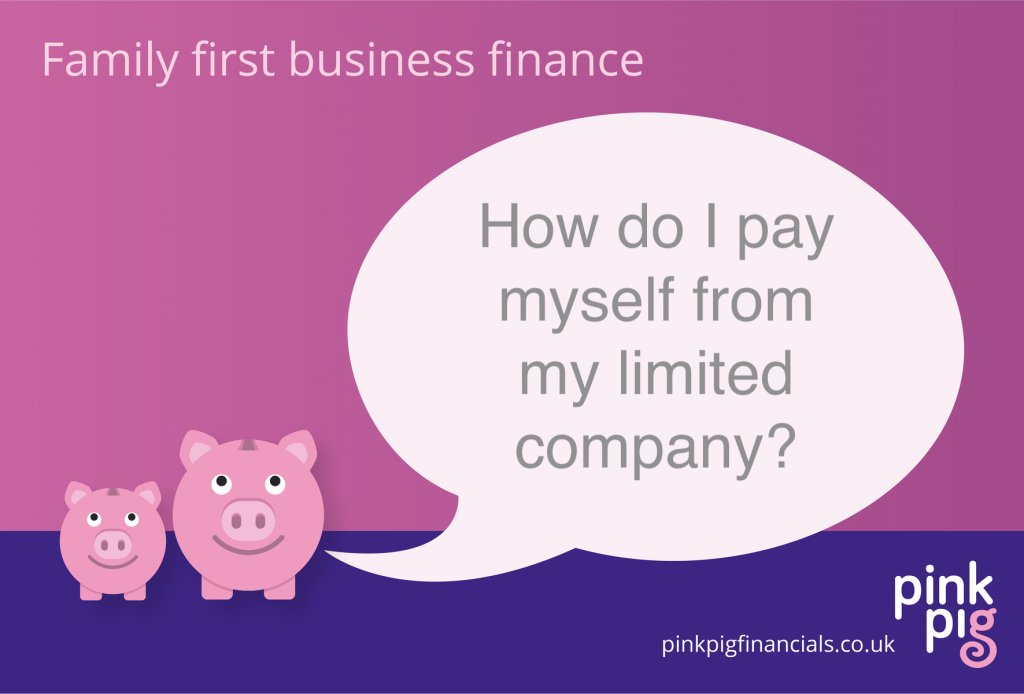When you set up a limited company you will usually be employed by your company. Therefore, paying yourself out of your limited company can be a mixture of salary and dividends. You may have heard of the phrase ‘low salary high dividends’. This basically means paying yourself a low salary and the rest of your income will come in the form of dividends.
How much salary to I pay myself?
If you are a sole director with no staff then your salary will be set at the National Insurance limit (£8,424 for 19/20 tax year), so you do not pay any tax or national insurance from your salary (but you are over the threshold to get your ‘tick’ for the year towards your state pension).
If you have staff or there are 2 or more directors, then your salary will usually be your personal allowance for the year (£12,500 for 19/20). This is due to the Employment Allowance. The government currently give each company a discount each year (£3,000 for 19/20) off the Employer’s National Insurance contributions. This is only available for employers where there are 2 or more employees paid over a certain amount. Basically, this means you need to pay a small amount in Employees National Insurance out of your salary, but this is offset by the Corporation and Personal Tax saved.
What are Dividends?
Dividends are payable out of the profits after Corporation Tax. Dividends are treated as income rather than earnings, so there is no National Insurance to pay on dividends. There is a personal tax-free allowance for dividends each year (for 19/20 this is £2,000 per shareholder), and any dividends paid over this allowance are personally taxed at the dividend rates. If you have any ‘free’ personal allowance (ie when a sole trader) your personal allowance can be topped up tax free with dividends, and you still get the dividend allowance before any tax is due on dividends.
The current dividend tax rates are:
- 7.5% for basic rate taxpayers
- 32.5% for higher rate taxpayers
- 38.1% for additional rate taxpayers
What if my limited company is my second income?
If your limited company income is in addition to employment where you already earn over your personal allowance then we’d recommend to only pay yourself in dividends, no additional salary.
What is a Directors Loan/Current Account?
You may have heard of the term ‘Directors Loan Account’ or ‘Directors Current Account’. These are used to keep a record of money invested or paid to the director. We recommend any payments to yourself are recorded to here, and when you pay personally for expenses they are recorded here too. At the end of the year the balance of this account is what is owed to or owed by the director. If there are enough profits in the company dividends can be declared to clear any balances owed by the director. If there isn’t enough profit, then the amount will need to be repaid by the director within 9 months to avoid any tax penalties. Therefore, you should keep a close eye on this balance to ensure you are not taking too much out of the company. Any money owed to the director can be repaid to the director (when there is enough cash in the company available) without any tax implications.
What happens as my business grows?
As your company grows there may be a need for the salary/dividend mix to be amended to suit the scale of your business, and this is something we review with all of our clients on an annual basis – and we would recommend you speak to your accountant about to ensure you have the right mix for your circumstances.
How will this affect my ability to get a mortgage?
Dividends are taken into account for mortgage purposes, so the mix and how you pay yourself would not affect your ability to obtain a mortgage. Some lenders also take the profits of your business into account too, so you do not need to take more dividends than you require to bump up your income for mortgage purposes. We recommend if you are looking to obtain a mortgage to have a chat with ourselves and/or a mortgage advisor a good 12-24 months in advance to ensure you have the best strategy and can prepare accordingly.
Do I need to complete a tax return?
Directors will need to complete and file a self-assessment each year and pay any tax liability by the 31st January following the end of the tax year.
What is the best option for my circumstances?
If you’d like to review your salary/dividend mix and how you currently pay yourself, please visit our Work With Us page to complete our quick questionnaire and book a Discovery Call with us.

